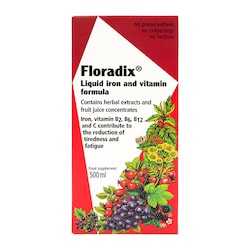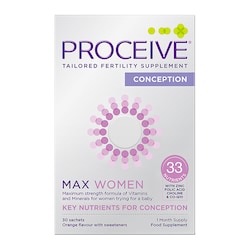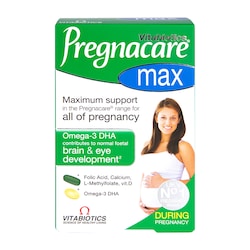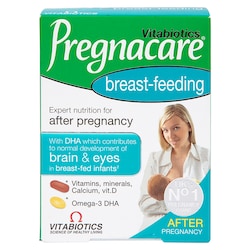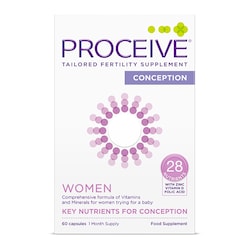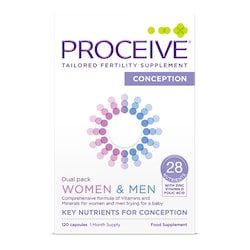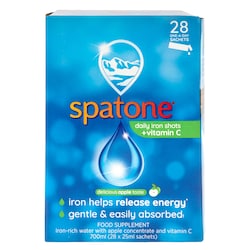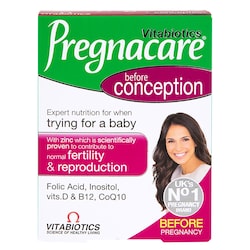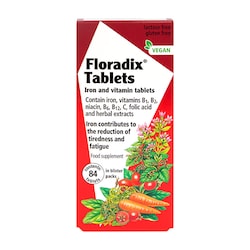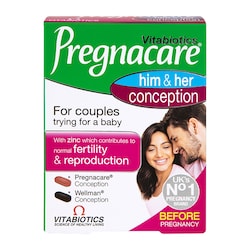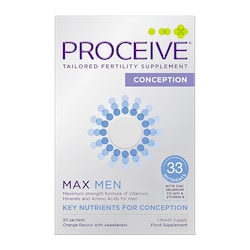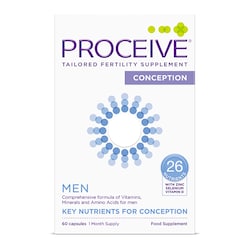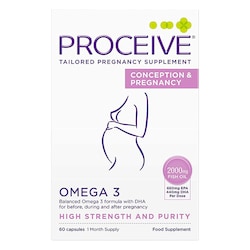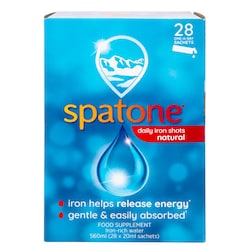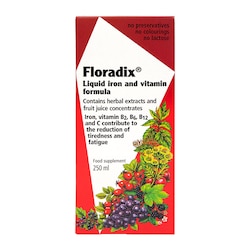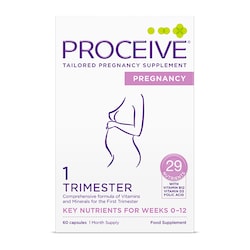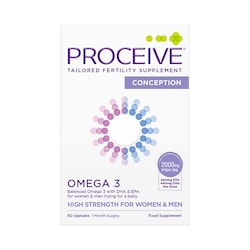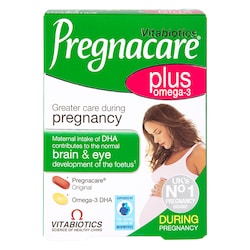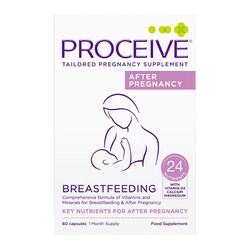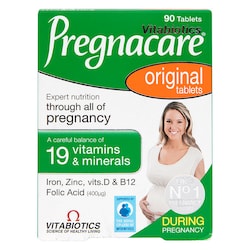15% off £30 OR 20% off £40
The best iodine supplements for 2022
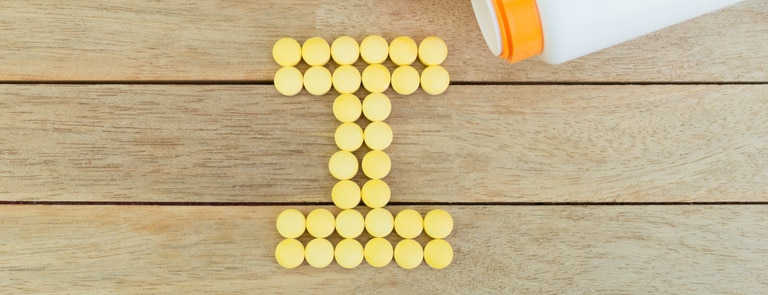
Iodine plays a crucial role in the human body and is particularly essential for growth and development, particularly within unborn babies and newborns.
In this article, we explain all there is to know about iodine, including what it is, what it does, how much to take of it, and more. We also provide you with a useful list of the best iodine supplements around.
What is iodine?
Iodine is an essential mineral that helps our bodies make thyroid hormones.
These hormones are made by the thyroid gland and are responsible for controlling several important functions within the body, including growth and development.1,2
More specifically, it helps keep our cells healthy and makes sure chemical reactions take place in the body at the right speed.
Our bodies also need thyroid hormones for proper bone and brain development during pregnancy and childhood.3
Our bodies don’t produce iodine, which means we need to get it through our diet or by taking iodine supplements.
In some countries, people use salt that’s enriched with iodine to maintain their levels.4
A drop in iodine levels can result in the body not being able to produce enough thyroid hormones, which can then impact cell health, as well as metabolism.
Summary
Iodine is an essential mineral that helps our body make thyroid hormones for cell health and metabolism.
Our body doesn’t produce iodine, so it’s important we get it from our diet or by taking supplements.
How much iodine do we need daily?
Believe it or not, a teaspoon of iodine will provide us with all the iodine we need for our entire life.
But because it’s not stored in the body for long, we need to keep replenishing our supply of it.5
How much iodine, which is measured in micrograms (mcg/μg), you need on a daily basis depends on how old you are.
Women who are pregnant or breastfeeding also need to increase their iodine intake.
Recommended daily intake levels
- 1 to 8 years old – 90mcg
- 9 to 13 years old – 20mcg
- 14 years old and upwards - 140 to 150mcg
- Pregnant women – 200 to 220mcg
- Breastfeeding women - 290mcg
It’s possible for the vast majority of people to get all the iodine they need by eating a healthy, balanced diet.6
However, those who are following a strict diet that prevents them from eating any fish, which is a particularly good iodine food source, may want to consider taking iodine supplements.
Most people get enough iodine from their food, but some people do struggle to maintain their levels. They include:7
-
Pregnant women
Need around 50% more iodine during their pregnant to make sure their baby is getting adequate amounts of it and develops and grows as they need to during pregnancy and those initial first few months after being born (as mentioned up above).
-
People who follow a restricted diet or eat few or zero dairy products
Vegetarians and vegans and people whose diet includes minimal or no dairy products, seafood and eggs - the best food sources of iodine - are at risk of developing a deficiency.
-
People who eat few iodine foods as well as food that contains goitrogens
Goitrogens are substances that interfere with the way the body uses iodine.
They’re present in some plant foods, including soy and cruciferous vegetables, such as cabbage, broccoli, cauliflower and brussels sprouts.
If you’re eating iodine-rich food as well as these food sources, the risk of developing a deficiency should be minimal.
Summary
The amount of iodine you need depends on how old you are.
Pregnant and breastfeeding women need more of it to ensure it passes to their child for healthy growth and development.
Not having enough iodine can lead to symptoms, including goiter, hyperthyroidism or hypothyroidism and development issues in unborn babies and newborns.
Sources of iodine
As we’ve mentioned up above, we should be able to get all the iodine we need from our diet. The main food sources of iodine are:8
| Food source | Amount | Average iodine/portion (mcg) | |
|---|---|---|---|
| Milk and dairy | Cow's milk | 200ml | 50-100 |
| Organic cow's milk | 200ml | 30-60 | |
| Yoghurt | 150g | 50-100 | |
| Cheese | 40g | 15 | |
| Fish | Haddock | 120g | 390 |
| Cod | 120g | 230 | |
| Plaice | 130g | 30 | |
| Salmon fillet | 100g | 14 | |
| Canned tuna | 100g | 12 | |
| Shellfish | Prawns | 60g | 6 |
| Scampi | 170g | 160 | |
| Other | Eggs (1) | 50g | 25 |
| Meat/poultry | 100g | 10 | |
| Nuts | 25g | 5 | |
| Bread (1 slice) | 36g | 5 | |
| Fruit and veg (1 portion) | 80g | 3 |
Plant foods, such as cereals and grains, also contain iodine (the levels vary depending on the amount of iodine in the soil where the plants are grown).9
The richest food sources of iodine are fish, milk and dairy products. When it comes to fish, white fish contains more iodine than oily fish.
Meanwhile, most people tend to get most of their iodine from milk and dairy.10
Non-dairy milk products, such as soya, almond and oat milk, aren’t always fortified with iodine and therefore contain minimal levels of it.
Always check the label beforehand because the levels can vary from brand to brand.
Seaweed contains extremely high levels of iodine, so much so, it’s possible for it to provide too much of a person’s daily recommended allowance.
It’s therefore recommended you eat it no more than once a week, especially if you are pregnant.
Note – brown seaweed, such as kelp, contains the highest amount.
Summary
The richest food sources of iodine are fish, milk and dairy products.
Most people tend to get their iodine intake from milk and dairy products however, those who don’t may need to take supplements to keep their levels up.
What are the best iodine supplements to take?
There are lots of iodine supplements out there.
We’ve collated the details of some of the best ones, based on key criteria, including iodine levels, recommendations and more, and listed them for you below:
High strength
1. Weed & Wonderful Organic Scottish Seaweed 60 Capsules
Doctor Seaweed’s Weed & Wonderful supplements are an extremely easy way to incorporate seaweed into your everyday life and gain from its many health benefits.
They contain pure Organic Hebridean Ascophyllum seaweed powder, and are research led, with clinical trials on iodine and thyroid health, as well as on-going research on the benefits for weight and blood sugar management
Pipjones says – Loads of energy - 5/5 stars
‘After one week of taking the tablets, I have noticed a real improvement to my energy levels, and skin. Brilliant product with great health benefits.’
2. Nature's Way Bladderwrack with Iodine 100 Capsules
Nature's Way Bladderwrack capsules are a source of iodine and provide a convenient way of supporting thyroid function, delivering iodine from a marine source.
Bladderwrack is rich in minerals that are frequently deficient in modern diets. Specifically, iodine is essential for the thyroid, which controls weight, hair condition and energy levels
Bobelle says – Kelp help - 5/5 stars
‘I used to have kelp tablets in my teens and rediscovered it in my 50s. Loved the fact it was called Bladderwrack. Find it helps improve my hair and nails. Hair feels thicker and has got its curl back and my nails are stronger and whiter with no splitting.’
Highly-rated
3. Starpowa Hair, Skin and Nail 60 Gummies
These hair and nail gummies are chewable tablets that taste great and come packed with a variety of beneficial vitamins and minerals, including iodine (150ug).
They’re designed to support, healthy hair, normal skin and general nail maintenance.
Isabella95 says – They really work! - 5/5 stars
‘I’ve been using these for a few months now and I really feel the difference! My hair has been shoulder length for the last 8 years (due to damage from going blonde at age 15) and it's now started to grow! My nails have also been the longest they have ever been and I’m loving it!’
Easy to take
4. Floradix Liquid Iron Formula 500ml
This iodine liquid is designed to provide people with an easy solution to some of the symptoms of having low iodine levels.
A quick 10ml sip twice a day fills the body with high-quality iron, as well as Vitamins B2, B6, B12 and C.
Due to its potency and ease of absorption, Floradix Liquid Iron is particularly suitable for the elderly, women, expectant and lactating mothers, people with an active lifestyle and vegetarians.
Tamera says – Reduce fatigue - 5/5 stars
‘I was recommended this product a couple of days ago and hands down this is the BEST product I have used to help boost my iron and reduce my tiredness and fatigue.’
To conclude
Iodine is an essential mineral that’s extremely important for everyday health and is possible to obtain from several food sources.
However, if you are following a diet that includes limited or no dairy, milk or fish products, then you may want to consider taking iodine supplements to maintain your levels.
Fortunately, there are lots of different supplements to choose from, many more than the supplements we’ve listed above, which are aimed at showing you what just some of the possible options are.
If you do intend to take iodine supplements, speak to your GP first to check it’s safe for you to do so.
Last updated: 7 March 2022
- https://www.nhs.uk/conditions/vitamins-and-minerals/iodine/
- https://www.eatright.org/food/vitamins-and-supplements/types-of-vitamins-and-nutrients/iodine-a-critically-important-nutrient
- https://ods.od.nih.gov/factsheets/Iodine-Consumer/
- https://www.verywellhealth.com/benefits-of-iodine-4570996
- https://www.eatright.org/food/vitamins-and-supplements/types-of-vitamins-and-nutrients/iodine-a-critically-important-nutrient
- https://www.nhs.uk/conditions/vitamins-and-minerals/iodine/
- https://ods.od.nih.gov/factsheets/Iodine-Consumer/
- https://www.bda.uk.com/resource/iodine.html
- https://www.nhs.uk/conditions/vitamins-and-minerals/iodine/
- https://www.bda.uk.com/resource/iodine.html


